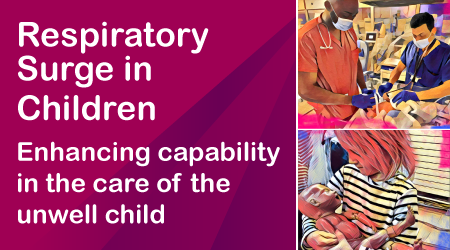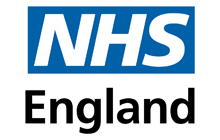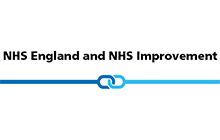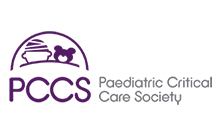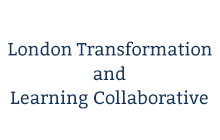About the Respiratory Surge in Children programme
The Respiratory Surge in Children resources are aimed at healthcare staff working in the various settings where a child will present with respiratory illness. Within the programme, the term ‘child’ is used to represent infant, child and young person.
The programme resources have been divided across 7 domain folders (see below) and, in most instances, have been further categorised according to the care level that they relate to:
- Primary and community care out of hospital
- Ward based / Level 1 care: basic critical care
- Level 2 care: intermediate critical care / HDU – we recommend you also look at the ward based / Level 1 resources to ensure you are familiar with all content covered
- Level 3 care: advanced critical care – we recommend you also look at the ward based / Level 1 and Level 2 resources to ensure you are familiar with all content covered
To support different learner needs and contexts, the programme hosts a range of resources that vary in terms of content type, for example, text, video, audio, and duration to complete, which can be found in the resource title name. You can find out more about the different ways to navigate through the programme in the ‘How to use the Respiratory Surge in Children programme’ section below.
The development of the Respiratory Surge in Children programme ended in March 2022, and all the content was reviewed, refined and updated in March 2024. Please contact the elfh team for any further information or questions about the programme.
-
Aim
The Respiratory Surge in Children programme aims to support the national NHS workforce to manage:
- existing demand in children
- potential future spikes in paediatric demand as a result of respiratory syncytial virus (RSV) and other respiratory illnesses in children
- longer-term increasing paediatric acuity and demand in children
-
Objectives
- provide engaging and informative content through a digital modular education programme
- promote widespread accessibility and inclusivity through multi-channel delivery
- accommodate different skill requirements across all care settings (home, primary and community care and hospital care) through carefully curated content
- optimise workforce and training innovations
- summarise roles and essential skills required for the NHS workforce to function in a surge model in paediatric care settings through a national digital skills passport
-
Approach
The programme was led by users with both the healthcare systems and future learners actively involved in every stage, from development to delivery. We worked with the Paediatric Critical Care Society (PCCS) and the Paediatric Critcal Care Operational Delivery Networks (ODNs) to ensure programme response to different needs across the nation.

Our aims were achieved through 4 key phases, supported by robust governance and assurance:
- Understand
– care standards and competency frameworks (for example, RCPCH, RCN / NMC) - Develop
– co-development of an interprofessional skills matrix that summarises key skills required for different levels of care, with mapped educational resources
– curation of existing educational resources for learners, trainers and systems onto this elfh microsite, for different levels of care and settings where children are cared for
– co-design of a national digital skills passport - Deliver
– dissemination of educational resources and digital skills passport at a national level - Refine
– implementation of a feedback mechanism, to enable continued refinement
- Understand
-
Alignment to standards and competencies for care for children
Paediatric standards for levels of care and competencies have been aligned to:
- High Dependency Care for Children – Time to Move On: A focus on the critically ill child pathway beyond the Paediatric Intensive Care Unit (Royal College of Paediatrics and Child Health, 2014)
– Appendices: High Dependency Care – Time to move on - Quality Standards for Care of Critically Ill Children 5th Edition PICS 2015
The content is matched against Royal College of Paediatrics and Child Health (RCPCH), Royal College of Nursing (RCN) and Nursing and Midwifery Council (NMC) professional competencies to aid presentation for revalidation and appraisal.
- High Dependency Care for Children – Time to Move On: A focus on the critically ill child pathway beyond the Paediatric Intensive Care Unit (Royal College of Paediatrics and Child Health, 2014)
How to use the Respiratory Surge in Children programme:
Step 1: use the searchable index or the drop down menu in elfh to find and access relevant resources
Step 2: complete your learning at your own pace
Step 3: tell your colleagues about the programme with this downloadable poster (PDF, 382KB)
-
How to access
The Respiratory Surge in Children programme houses free, open access resources.
In order to access the Respiratory Surge in Children programme, you will need an elfh Hub account. If you do not have one, then you can register by selecting the Register button below.
To view the Respiratory Surge in Children programme, select the View button below. If you already have an account with elfh, you will also be able to login and enrol on the programme from the View button.
Registering large numbers of users
If you are a HR, IT or Practice Manager and would like to register and enrol large numbers of staff within your organisation for access onto the Respiratory Surge in Children programme, please contact elfh directly.
More information
Please select the following link for more information on how to use the elfh Hub.
-
Add this programme to your phone home screen for quick access
You can add this programme page on your phone by accessing your browser settings or share settings and selecting “Add to Home Screen”. Please note steps vary between devices. On an iPhone tap the “share” icon
 and then “Add to home screen”.
and then “Add to home screen”.
Searchable index for Respiratory Surge in Children resources

The searchable index has been developed by mapping the Respiratory Surge programme’s educational content to learning objectives and skills, by domain and by level of paediatric care.
Its searchable functionality allows users to quickly find and access relevant content on the programme by:
-
keywords, resource titles and topics
-
staff group
-
care setting
-
learning objective
-
learning duration
-
content type (for example, text, video, audio)
Access the searchable index for Respiratory Surge in Children Resources
-
Add the searchable index to your phone home screen for quick access
You can add the searchable index web app to your phone home screen by opening it on your phone, accessing browser settings/share settings and selecting “Add to Home Screen”. Please note steps vary between devices and browsers. On an iPhone tap the “share” icon
 and then “Add to home screen”.
and then “Add to home screen”.
Rapid access resource lists
 These rapid access lists have been designed as quick introductions to the content in the Respiratory Surge in Children programme. Each list is designed to take no longer than 2 hours to complete and some also have additional “extension learning” should you feel you want to push yourself further.
These rapid access lists have been designed as quick introductions to the content in the Respiratory Surge in Children programme. Each list is designed to take no longer than 2 hours to complete and some also have additional “extension learning” should you feel you want to push yourself further.
- Basics of RSV and bronchiolitis
- High Flow Oxygen Therapy – no prior knowledge
- High Flow Oxygen Therapy – refresher
- Physiotherapists on paediatric wards
- Community Nurses – Bronchiolitis Revision
- Paediatric nurse to critical care L2
- Paediatric nurse to critical care L3
- Adult nurse to paediatric ICU
- Adult nurse to ward and HDU
- GP refresher
- Hospital doctor
Overarching resources
 This section houses resources that span multiple domains and/or provide context on the respiratory surge in children and includes:
This section houses resources that span multiple domains and/or provide context on the respiratory surge in children and includes:
- national guidance
- webinars
- toolkits
- infection prevention control (IPC)
- managing the surge
Take me to the Respiratory Surge in Children programme
Learning domains

The majority of the programme content has been categorised across 7 domains. Within each domain folder you will find resources for different levels of care and different resource types and durations.
Take me to the Respiratory Surge in Children programme
- If you are looking for specific resources based on a keyword, format, duration or learning objective, check out our Searchable Index
- If you are looking for quick introductions to the programme content, check out our rapid access resource lists on the Searchable Index
-
1. Recognition, management and escalation: care of the sick child
 This domain provides resources that enable healthcare providers and carers across all settings to use a systematic approach to identify deteriorating infants and children. Children with respiratory or circulatory failure become hypoxic and acidotic. Early recognition and treatment of respiratory and circulatory failure can prevent progression to severe illness.
This domain provides resources that enable healthcare providers and carers across all settings to use a systematic approach to identify deteriorating infants and children. Children with respiratory or circulatory failure become hypoxic and acidotic. Early recognition and treatment of respiratory and circulatory failure can prevent progression to severe illness.Take me to the Respiratory Surge in Children programme
-
2. The care and management of the child with respiratory illness
 This domain outlines the pathophysiology, signs and symptoms, and recommended treatment for children with respiratory disease being cared for in various settings including viral bronchiolitis. Most cases of viral bronchiolitis are due to respiratory syncytial virus (RSV). While self-limiting, bronchiolitis can be life-threatening in infants who were premature or have underlying respiratory, cardiac, neuromuscular or immunological conditions.
This domain outlines the pathophysiology, signs and symptoms, and recommended treatment for children with respiratory disease being cared for in various settings including viral bronchiolitis. Most cases of viral bronchiolitis are due to respiratory syncytial virus (RSV). While self-limiting, bronchiolitis can be life-threatening in infants who were premature or have underlying respiratory, cardiac, neuromuscular or immunological conditions.Looking for resources on respiratory support? Head over to Domain 3 ‘Non-invasive respiratory support’ for all our resources pertaining to oxygen therapy, high flow/high velocity therapy, CPAP/BIPAP, and all things long-term ventilation and tracheostomy related.
Take me to the Respiratory Surge in Children programme
-
3. Respiratory support
 This domain contains resources related to all types of respiratory support, and is organised in a step-wise approach (nasal cannula- face mask- high flow/ high velocity oxygen therapy- acute CPAP/ BiPAP plus tracheostomy and long term ventilation resources).
This domain contains resources related to all types of respiratory support, and is organised in a step-wise approach (nasal cannula- face mask- high flow/ high velocity oxygen therapy- acute CPAP/ BiPAP plus tracheostomy and long term ventilation resources).There are multiple, widely used abbreviations for high flow therapy or high velocity therapy, with little consensus. For clarification, the Respiratory Surge in Children programme refers to these devices as “high flow/ high velocity therapy” to encompass the wide range including specialist devices and ventilators that can provide this support. All can be used with or without oxygen. You may also see these devices referred to as heated humidified high flow therapy (HHHFT), high flow oxygen therapy (HFOT), high flow nasal cannula (HFNC) or simply high flow. These are all referring to same devices, unless otherwise stated.
Take me to the Respiratory Surge in Children programme
-
4. Differences between child and adult and Medicine Management
 This domain provides guides to support safe management of medications for sick children, including opportunities to practice calculations. This is relevant for both paediatric and adult trained staff across a variety of settings. It also includes essential information on physical and psychological differences between adults and children, and critical variations in physiology which are important to understand in all contexts, including when prescribing.
This domain provides guides to support safe management of medications for sick children, including opportunities to practice calculations. This is relevant for both paediatric and adult trained staff across a variety of settings. It also includes essential information on physical and psychological differences between adults and children, and critical variations in physiology which are important to understand in all contexts, including when prescribing.Take me to the Respiratory Surge in Children programme
-
5. Family centred care
 Family centred care is central to the provision of healthcare for any child in the UK. This domain describes how family centred care is practiced, what this means for those providing care, and essential communication techniques when working with a hospitalised child and their family. This section also explores key information about safely discharging patients, safety netting and approaching conversations about the COVID-19 vaccination in pregnancy.
Family centred care is central to the provision of healthcare for any child in the UK. This domain describes how family centred care is practiced, what this means for those providing care, and essential communication techniques when working with a hospitalised child and their family. This section also explores key information about safely discharging patients, safety netting and approaching conversations about the COVID-19 vaccination in pregnancy.Take me to the Respiratory Surge in Children programme
Parent / Carer Information Leaflets
This section also contains printable information leaflets for healthcare professionals to share with parents/carers on looking after a child with respiratory illness both in primary care settings and in/on discharge from hospital. -
6. Stabilisation and transfer
 All children’s acute care providers must be able to appropriately assess, treat, stabilise and escalate all critically ill children, including those requiring transfer, to a level 3 unit internally or externally. This domain includes resources to support safe delivery of advanced stabilisation of the critically ill child, covering recognition, monitoring, treatment, escalation and use of transfer equipment as well as regional drug calculators.
All children’s acute care providers must be able to appropriately assess, treat, stabilise and escalate all critically ill children, including those requiring transfer, to a level 3 unit internally or externally. This domain includes resources to support safe delivery of advanced stabilisation of the critically ill child, covering recognition, monitoring, treatment, escalation and use of transfer equipment as well as regional drug calculators.The Stabilisation of a Child prior to transfer with a Paediatric Retrieval Team elearning package, developed in collaboration with Embrace, provides a comprehensive introduction to this learning domain through videos and a 180 interactive image.”
Take me to the Respiratory Surge in Children programme
Helpful links: UK Paediatric Transport Networks
- Scotland Specialist Transport and Retrieval (ScotSTAR)
- North East Children’s Transport and Retrieval Service (NECTAR)
- Embrace: Yorkshire & Humber Infant & Children’s Transport Service (Embrace)
- North West and North Wales Paediatric Transport Service (NWTS)
- Wales and West Acute Transport for Children (WATCh)
- West Midlands Kids Intensive Care and Decision Support and Neonatal Transfer Service (KIDS & NTS)
- Children’s Medical Emergency Transport Service (CoMET)
- Children’s Acute Transport Service (CATS) | Educational videos from the North Thames Children’s Acute Transport Service (CATS)
- South Thames Retrieval Service (STRS)
- Southampton Oxford Retrieval Team (SORT)
- East of England Paediatric and Neonatal Decision Support & Retrieval service (PaNDR)
- Northern Ireland Specialist Transport and Retrieval (NISTAR) Paediatric
-
7. Wellbeing and staff recovery resources
 During patient surges staff may need to flex to support different areas. We have learned from other surges that the better prepared staff are in advance, the easier this is physically, emotionally and mentally.
During patient surges staff may need to flex to support different areas. We have learned from other surges that the better prepared staff are in advance, the easier this is physically, emotionally and mentally.It is important we check in with each other regularly, so these resources are designed to help us all have honest conversations, defuse and connect with colleagues. Not all people approach wellbeing by the same means; these resources acknowledge those differences and cover a variety of approaches.
Take me to the Respiratory Surge in Children programme
The Royal College of Paediatrics and Child Health (RCPCH) have collated wellbeing materials from across the country.
The Staff Recovery Resources page, curated by the London Transformation and Learning Collaborative, houses resources that were created to support healthcare staff recovering from the COVID-19 pandemic.
Resources cover a range of topics including, developing wellbeing conversations, creative storytelling, moral injury and negotiating brave conversations.
AHP specific resources
 This domain contains resources specific to physiotherapists and pharmacists who may be involved in caring for babies and children with bronchiolitis in the community, on a ward or an intensive care unit. These professional groups should also access the wider resource catalogue. Likewise, many clinicians working across paediatrics will benefit from viewing/accessing these AHP resources.
This domain contains resources specific to physiotherapists and pharmacists who may be involved in caring for babies and children with bronchiolitis in the community, on a ward or an intensive care unit. These professional groups should also access the wider resource catalogue. Likewise, many clinicians working across paediatrics will benefit from viewing/accessing these AHP resources.
Take me to the Physiotherapy specific resources
Take me to the Pharmacy specific resources
Educator resources

This domain provides resources for educators and trainers to use in the local workplace. These include:
- competency documents
- clinical guidelines
- slide decks
The resources cover a wide variety of topics relating to the Respiratory Surge in Children programme. Feel free to use them as they are or to inform and inspire your own resources. Please note: it is good practice and polite to retain the acknowledgements of the original authors who have shared these with us, so please do so.
Take me to the Respiratory Surge in Children programme
About the development team
The London Transformation and Learning Collaborative (LTLC) was a Health Education England and NHS England and Improvement initiative that was established in summer 2020 to support the London NHS workforce in response to the Coronavirus pandemic and to prepare for any future surges in demand. The LTLC team joined NHS Elect in 2023 and continue to deliver workforce, education and training services.
Since then, they have been responsible for the rapid and responsive co-development of a number of national programmes that aim to increase the capacity and capability of the workforce in response to urgent needs and demands of the healthcare system through the curation and development of free, open-access, interprofessional educational resources.
-
Other LTLC programmes
- Adult Critical Care programme
- Digital Skills Passport (project ended)
- Children and Young People with Mental Health needs in Acute Settings
-
Meet the team
- Julie Combes, Programme Lead
- Lydia Lofton, Governance and Implementation Lead
- Kathy Brennan, Governance and Implementation Lead
- Libby Thomas, Education Lead
- Ella Nuttall, National Skills Passport Strategy and Implementation Lead
- Kulwant Sindhar, PMO Lead
- Chloe Black, Multiprofessional Content Curation and Design
- Francesca Wright, Multiprofessional Content Curation and Design
- Jennifer Broadbent, Multiprofessional Content Curation and Design
- Joanne Broadhurst, Multiprofessional Content Curation and Design
- Laura Lowndes, Multiprofessional Content Curation and Design
- Pooja Bharucha, Multiprofessional Content Curation and Design
- Stacey Bedford, Paediatric Digital Skills Passport Clinical Lead
- Timothy Hunt, Digital Content Creation and Configuration Lead
- Tania Shetty, Project Manager
- Jennifer Yeboah, PMO Support Officer
- Christine Strickett, PMO Support Officer
- Frankie O’Brien, elfh Project Manager
- Bob Smith, elfh Platform Delivery Lead
- Hannah Denness, elfh Communications Officer



